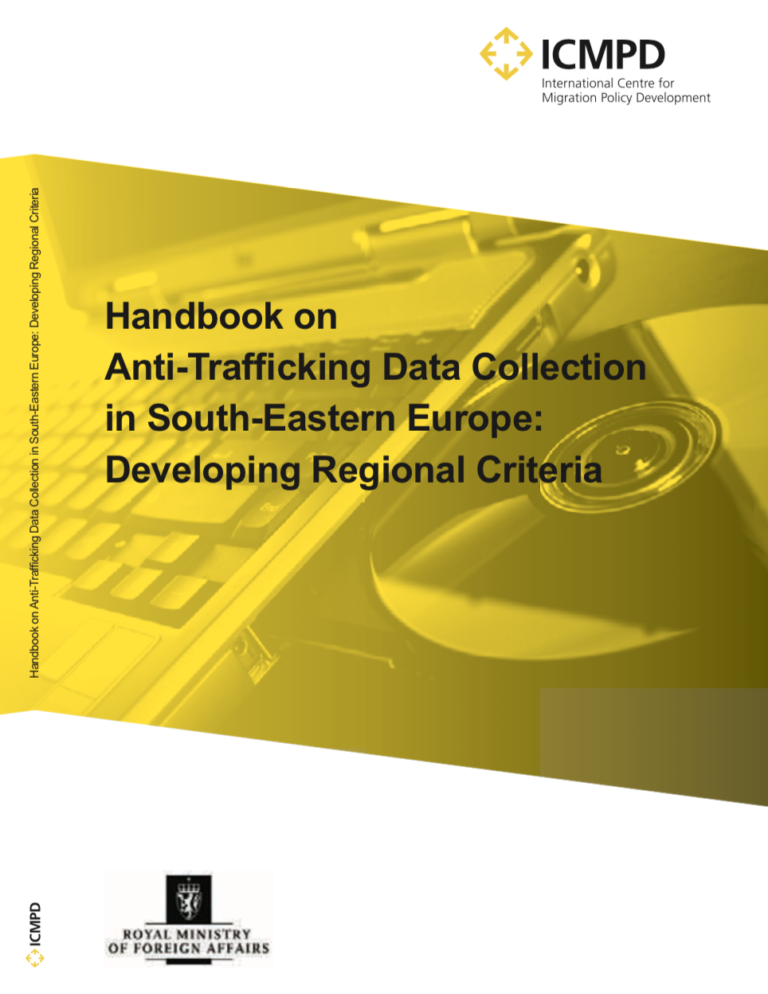In recent years a number of improvements regarding policy development in combating trafficking in human beings have taken place in South-Eastern Europe. One of the main open issues in relation to the development and revision of national responses to trafficking in human beings is the lack of systematic collection and management of relevant statistical data. This shortcoming has recently been highlighted as a priority to be addressed at the European level, recognising that governments need to have tools for the collection of data and information related to trafficking in human beings in order to monitor trends and shape evidence-based anti-trafficking policies.
The Handbook on Anti-Trafficking Data Collection in South-Eastern Eu- rope: Developing Regional Criteria was developed in the framework of the Programme for the Enhancement of Anti-trafficking Responses in South-Eastern Europe – Data Collection and Information Management, implemented by ICMPD in ten countries/territories in South-Eastern Europe and financially supported by the Norwegian Royal Ministry of Foreign Affairs and the Swiss Agency for Development and Cooperation has aimed to contribute to this endeavour. Additionally, this handbook has been updated in the framework of the second phase of the programme: Data Processing, Maintenance and Analysis (DCIM Phase II).
The Handbook contains a list of indicators utilised in two databases: one on victims of trafficking and one on traffickers and criminal justice, which have been updated according to the recommendations from the institutions participating in the second phase of the programme. According to the principle of national ownership, the indicators have been developed in close cooperation with partners from the governments of the ten countries/territories, as well as in consultation with international experts and representatives of international and non-governmental organisations.
The active involvement of national administrations is indispensable for the collection and utilisation of data. Hence, this document aims to be a useful tool for anti-trafficking actors engaged in the development of current and future policy responses in this regard.

